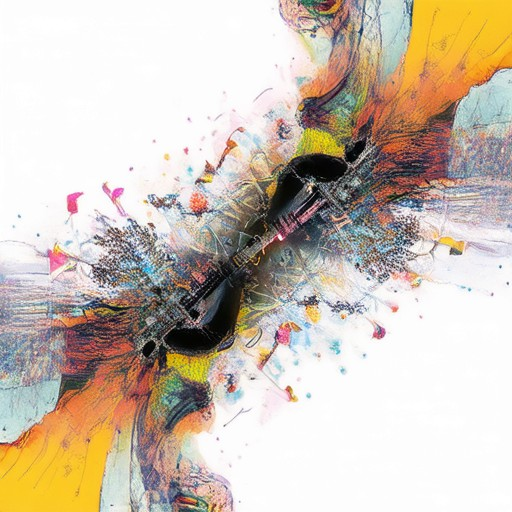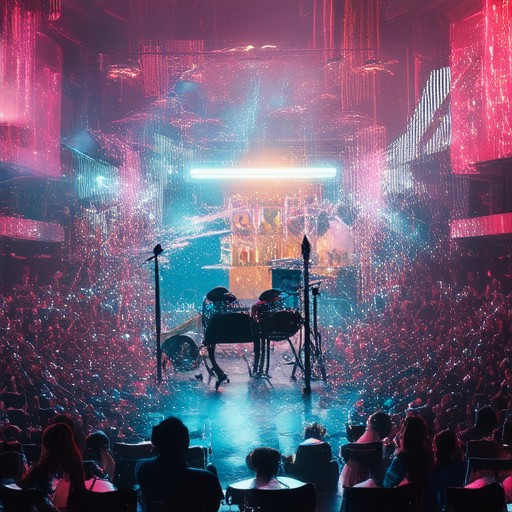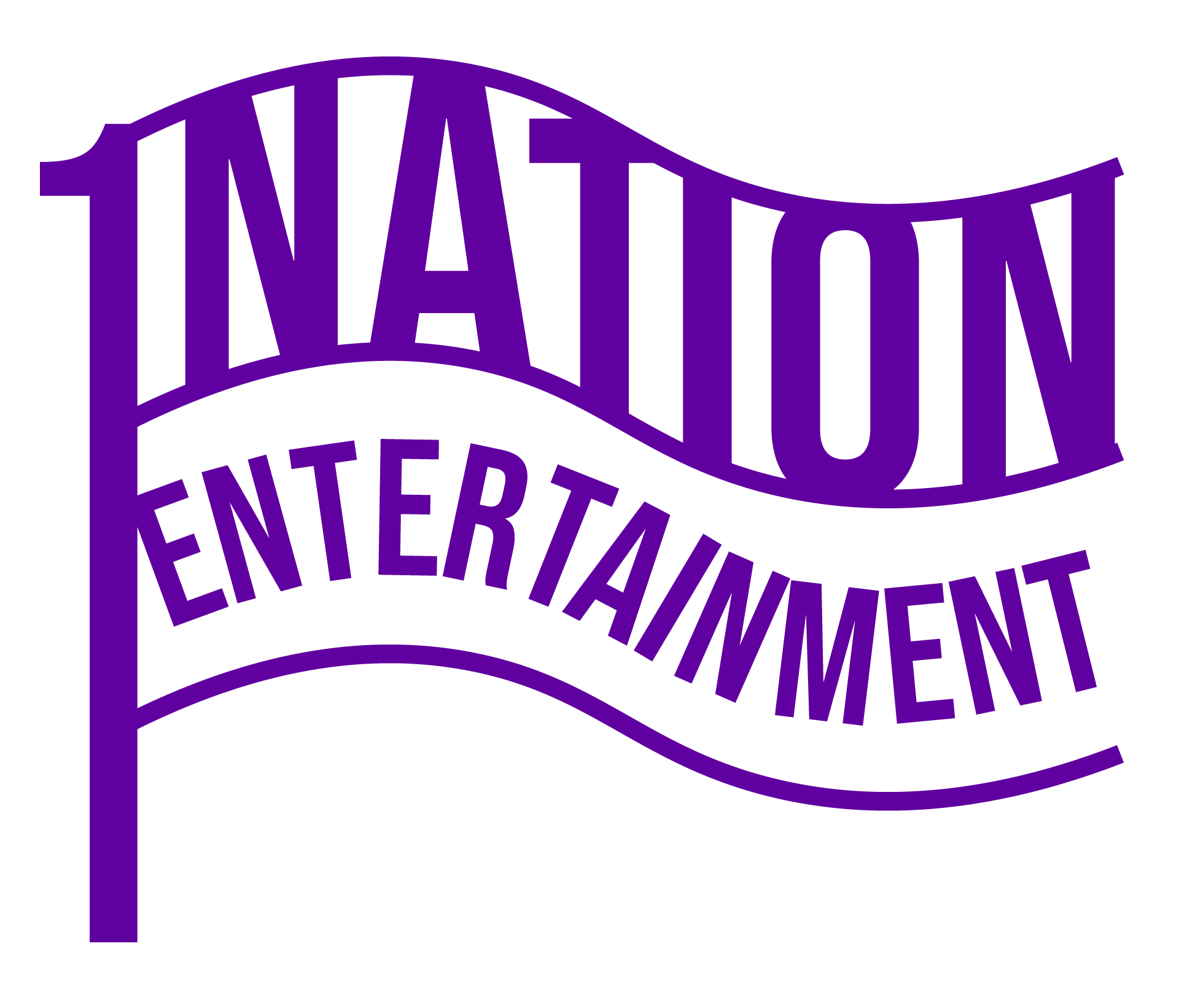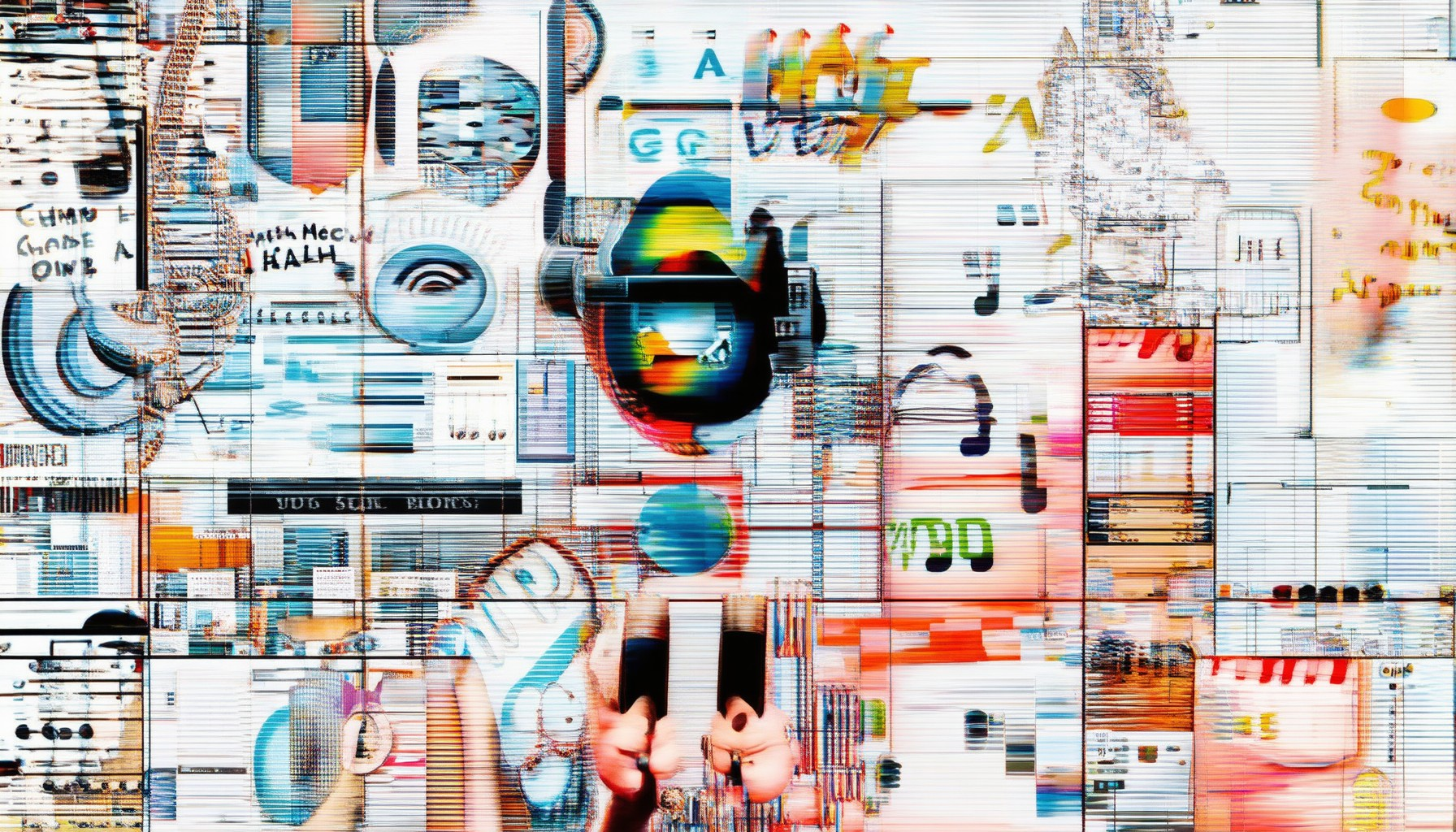The world of music is ever-evolving, always pushing boundaries and redefining what’s cool. From groundbreaking beats to innovative sounds, the latest music trends are shaping the way we experience artistry. Whether you’re a die-hard fan or a casual listener, staying in tune with current music trends is essential for discovering fresh sounds and connecting with the culture. But how do you keep track of it all? Enter the trusted guide: music blogs. These digital platforms are more than just spaces for music enthusiasts—they’re compasses navigating the vast ocean of audio innovation. With a single click, you can explore everything from genre-defying albums to viral anthems that everyone’s talking about. In this article, we’ll dive deep into the hottest music trends of today, uncovering what’s making waves and how blogs remain indispensable in this digital age.

What is the Newest Trend in Music?
The music landscape is constantly evolving, and 2025 has brought forth some exciting and innovative trends. Here’s a breakdown of what’s hot right now:
1. AI-Powered Music Production
AI is revolutionizing the way music is created. Tools like Native Instruments are integrating advanced algorithms to help producers and composers experiment with sounds and compositions. This technology allows for unprecedented creativity and efficiency in music production.
2. Genre Fusion
Music fans are embracing the fusion of different genres. Artists are blending trap with classical, lo-fi with jazz, and electronic with world music. This trend is pushing boundaries and introducing fresh sounds to audiences worldwide.
3. Vinyl Revival
Despite the rise of digital streaming, vinyl records are making a comeback. Collectors and audiophiles are flocking to limited-edition releases, and record stores are reopening in cities. The tactile experience of vinyl adds a unique charm to music consumption.
4. Virtual Concerts and Festivals
With the pandemic behind us, virtual concerts and festivals are still popular due to their convenience and ability to reach global audiences. Platforms like LiveStream.FM are enabling artists to connect with fans in innovative ways.
5. NFTs in Music
NFTs (Non-Fungible Tokens) are becoming a significant part of the music industry. Artists are selling exclusive tracks, album covers, and even concert tickets as NFTs. This trend is transforming how fans engage with their favorite artists and own a piece of music history.
6. Regional Sounds Going Global
Cultural music from around the world is gaining mainstream attention. Artists from Africa, Latin America, and Asia are collaborating with international stars, bringing their unique sounds to global audiences. This cultural exchange is enriching the music scene and fostering appreciation for diverse styles.
7. Artist-Centric Collaborations
Collaborations between artists are more complex and meaningful now. Superstars are teaming up with emerging talents, and this trend is creating exciting new sounds. Social media and streaming platforms are making it easier for artists to connect and collaborate across borders.
8. Sustainability in Music
Eco-consciousness is shaping the music industry. Artists are adopting sustainable practices, from recording in eco-friendly studios to releasing music on reusable physical formats like USB drives. This trend aligns with the broader push towards environmental responsibility.
These trends highlight the dynamic nature of music and its ability to adapt to new technologies and cultural shifts. Whether you’re into experimental AI productions or nostalgic vinyl records, there’s something for everyone in the ever-evolving world of music.
What is the latest music trending now?
The music landscape is constantly evolving, with fresh sounds and artists emerging regularly. Here’s a snapshot of the most trending music as of late:
- Billie Eilish : The Grammy-winning artist has made waves with her latest singles, blending alternative pop with experimental sounds.
- Taylor Swift : Her re-recorded version of “Red” has sparked significant buzz, resonating with fans globally.
- Doja Cat : Known for her high-energy tracks, she continues to dominate charts with her latest releases.
- Lo-Fi Beats : This genre remains popular among younger audiences, with platforms like YouTube and Spotify seeing a surge in demand.
- K-Pop : Groups like BTS and Blackpink maintain their global influence, with new singles often breaking records.
If you’re looking to stay updated, head over to 1NationEntertainment.net for the latest insights and trends in music and entertainment.

Music Trend for Gen Z
Generation Z, often referred to as Gen Z, has developed distinct music preferences that reflect their unique cultural and technological experiences. Here are the key aspects of the current music trend among Gen Z listeners:
- Genre Preferences: Rap and R&B remain dominant among Gen Z listeners, with trap, lo-fi, and hyperpop gaining significant traction. These genres often resonate due to their energetic beats and relatable lyrics.
- Streaming Platforms: Gen Z heavily relies on platforms like Spotify and Apple Music, favoring curated playlists and algorithmic recommendations over traditional radio.
- Social Media Influence: Music trends are frequently propelled by TikTok and Instagram, where short, catchy clips drive viral popularity. Collaborative projects between artists and influencers often climb the charts.
- Diversity of Taste: While rap and R&B dominate, Gen Z also explores a variety of subgenres, including indie and alternative music, showcasing their eclectic tastes.
This generation’s music consumption reflects their preference for authentic, shareable, and visually appealing content, shaping the music landscape in unique ways.

Are Music Blogs Still a Thing?
Music blogs have evolved significantly since their emergence in the mid-2000s, adapting to changes in the music industry and shifting consumer preferences. While their dominance has been overshadowed by platforms like social media and streaming services, music blogs continue to play a vital role in the music ecosystem.
The Evolution of Music Blogs
Music blogs originally served as a primary source of music discovery, artist interviews, and album reviews. Over time, they’ve had to compete with the rise of YouTube, SoundCloud, and Spotify, which now dominate how music is consumed and shared. Despite this competition, music blogs remain a trusted resource for fans seeking in-depth analysis, exclusive content, and unique perspectives.
Why Music Blogs Still Matter
- Artist Promotion : Many independent artists and smaller labels rely on music blogs to reach audiences. Bloggers often showcase unsigned talent, providing exposure that might otherwise be difficult to attain.
- Fan Engagement : Music blogs foster a sense of community among fans. Readers can engage with writers through comments, shares, and social media interactions, creating a deeper connection between artists and their supporters.
- Niche Communities : Music blogs cater to specific genres or subcultures, offering fans a dedicated space to explore their interests without being overwhelmed by mainstream content.
- Cultural Analysis : Music bloggers often provide insightful commentary on trends, albums, and performances, contributing to the broader conversation around music and culture.
1 Nation Entertainment: A Case Study
At 1 Nation Entertainment, we recognize the enduring value of music blogs. Our platform combines the intimacy of a personal blog with the reach of a global publication, offering readers a blend of news, reviews, and features that span the entire spectrum of the music industry. From breaking down the latest trends in musical theater to exploring emerging artists and cultural movements, our content is designed to inform and inspire music enthusiasts of all stripes.
How We Fit In
Our approach to music blogging is rooted in quality and authenticity. We aim to provide readers with original, well-researched content that adds value to their musical journey. By focusing on in-depth analysis and exclusive insights, we hope to become a go-to destination for anyone looking to stay ahead of the curve in the ever-changing world of music.
Conclusion
Music blogs may not dominate the headlines like they once did, but they remain an indispensable part of the music industry. At 1 Nation Entertainment, we are committed to carrying forward the legacy of music blogging, delivering content that resonates with fans and contributes to the ongoing conversation about music.
What is Replacing Blogs?
Blogging has been a cornerstone of digital content creation, but its dominance is being challenged by emerging platforms and technologies. Here’s an overview of what is replacing blogs:
1. Social Media Platforms
Social media platforms like Instagram, TikTok, and Twitter have become hubs for sharing quick, engaging, and often visual content. While blogs are typically longer-form, social media allows for bite-sized updates, making it a popular alternative for reaching a broad audience quickly.
2. YouTube and Video Content
YouTube has emerged as a major platform for video content, which can encompass everything from educational tutorials to entertaining vlogs. Creators often produce long-form content, similar to blogs, but in a more visually appealing format. This shift towards video content has reduced the reliance on traditional blogs.
3. AI-Powered Content Generation
With the rise of AI tools like ChatGPT, generating written content has become automated. This technology can create blogs, articles, and other forms of written content, reducing the need for human bloggers. AI also enables personalized content based on user data, adding a layer of efficiency that was previously difficult to achieve with traditional blogging.
4. Podcasts and Audio Content
Podcasts have gained immense popularity, offering listeners deep dives into niche topics. While podcasts are audio-based, they serve a similar purpose to blogs by providing in-depth analysis and discussions, making them a viable alternative to traditional blogging.
5. Visual and Interactive Content Formats
Livestreams, webinars, and virtual events are becoming increasingly popular. These formats allow for real-time interaction and immediate feedback, which traditional blogs lack. As a result, many creators are moving away from blogs to focus on more engaging, interactive experiences.
6. Micro-Content and Short-Form Writing
Short-form content, such as LinkedIn articles or Twitter threads, is gaining traction. These formats require less time commitment but still deliver valuable insights, serving as a bridge between traditional blogs and more casual social media updates.
Conclusion
While blogs remain relevant, especially for in-depth analysis and SEO purposes, the rise of social media, video content, AI tools, and interactive formats is reshaping the digital landscape. Content creators are adapting to these changes to meet the evolving preferences of their audiences.

Do Music Blogs Make Money?
Yes, music blogs can generate revenue through various strategies. Earnings often depend on factors like niche, content quality, and audience engagement. Here’s how music bloggers typically make money:
- Affiliate Marketing: Promoting products or services related to music, such as instruments, tickets, or music-related gear, can earn commissions.
- Selling Merchandise: Creating and selling music-related merchandise like t-shirts, posters, or CDs can be a steady income source.
- Display Ads: Placing ads on the blog can provide income through programs like Google AdSense or targeted ad networks.
- Music Lessons or Services: Offering lessons or consulting services can attract paying clients looking to learn more about music production or career advice.
- Sponsored Posts: Partnering with brands or artists for sponsored content can provide significant income, especially for popular blogs.
Additionally, many music bloggers use platforms like Patreon or SubscribeStar to offer premium content subscriptions, further diversifying their income streams.
By focusing on high-quality content, building a loyal audience, and exploring multiple monetization strategies, music bloggers can successfully earn revenue while sharing their passion for music.




